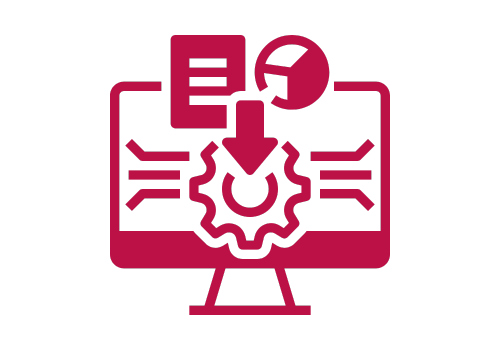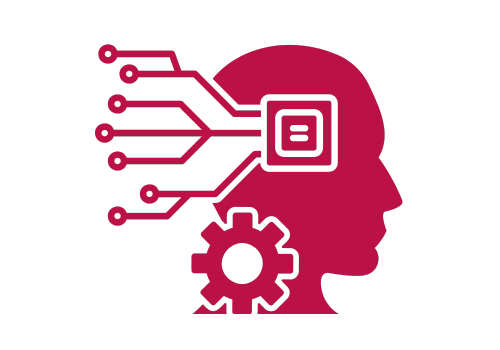Introduction to Apache Kafka
Empower Your Data Streams: From Basics to Real-world Applications
Why This Training?
In today's data-driven landscape, real-time data streaming has become pivotal for many industries, driving the need for powerful tools like Apache Kafka. Whether you're looking to streamline operations, build real-time analytics, or tap into the event streaming paradigm, this training serves as your stepping stone into the world of Kafka.
Duration: 9 Hours (online / virtual live session)

Who Should Attend?
Data Engineers and Architects aiming to harness the power of event streaming.
IT Professionals looking to expand their skill set in data processing tools.
Business Analysts and Managers who want to understand the capabilities of Kafka.
Developers and Coders aspiring to integrate Kafka into their applications.
IT Professionals looking to expand their skill set in data processing tools.
Business Analysts and Managers who want to understand the capabilities of Kafka.
Developers and Coders aspiring to integrate Kafka into their applications.

Course Highlights
Foundational Understanding: Dive deep into the event streaming paradigm and Kafka's role in it.
Comprehensive Architecture Study: Explore Kafka's core components, including Topics, Partitions, Producers, and Consumers.
Comprehensive Architecture Study: Explore Kafka's core components, including Topics, Partitions, Producers, and Consumers.
See more
Hands-on Learning: Set up Kafka, produce and consume messages, and build simple stream processing applications.
Advanced Features: Uncover Kafka's advanced functionalities like Kafka Streams and Kafka Connect.
Security Insights: Ensure your Kafka setup is robust and secure with best-practice guidelines.
Practical Applications: Real-world use cases and case studies to bridge theory with practice.
Best Practices and Tips: Navigate the common pitfalls and optimize Kafka's performance in real-world scenarios.
Advanced Features: Uncover Kafka's advanced functionalities like Kafka Streams and Kafka Connect.
Security Insights: Ensure your Kafka setup is robust and secure with best-practice guidelines.
Practical Applications: Real-world use cases and case studies to bridge theory with practice.
Best Practices and Tips: Navigate the common pitfalls and optimize Kafka's performance in real-world scenarios.

Pre-requisites
Basic understanding of distributed systems.
Fundamental knowledge of data processing and streaming concepts.
Familiarity with command-line tools and basic programming concepts.
Fundamental knowledge of data processing and streaming concepts.
Familiarity with command-line tools and basic programming concepts.
Training Materials Needed by Participants
A laptop or desktop computer with at least 8GB RAM and a modern processor.
Installation privileges to set up required software.
A stable internet connection for downloading tools and packages.
Apache Kafka documentation (provided in the training package).
Access to a cloud account (optional) for extended exercises.
Write your awesome label here.
Training Content
Introduction to Apache Kafka
Session 1: Foundations of Kafka and Event Streaming
Objective: Understand the fundamental concepts of event streaming and the pivotal role of Apache Kafka in this domain.
1. Introduction to Event Streaming & Apache Kafka:
1. Introduction to Event Streaming & Apache Kafka:
- What is event streaming?
- Overview of Apache Kafka and its significance in the current tech landscape.
2. Kafka Architecture:
- Topics, Partitions, and Offsets.
- Producers, Consumers, and Brokers.
- Introduction to Kafka Cluster and the role of Zookeeper.
3. Installing and Setting up Kafka:
- Prerequisites and Installation.
- Starting a Kafka server and creating topics.
4. Producers and Consumers:
- Basics of producing messages to Kafka topics.
- Introduction to consuming messages using Kafka consumers.
Session 2: Deep Dive into Kafka Functionality
Objective: Explore Kafka's advanced features, focusing on stream processing, connectors, and security.
5. Kafka Streams:
- Introduction to Kafka Streams.
- Building simple stream processing applications.
6. Kafka Connect:
- Role of Kafka Connect in the ecosystem.
- Overview of Source and Sink Connectors.
7. Securing Kafka:
- Kafka authentication and authorization basics.
- Brief on encrypting data at rest and in transit.
8. Monitoring and Management:
- Key metrics to monitor in Kafka.
- Introduction to tools for Kafka monitoring.
Session 3: Practical Applications, Best Practices, and Forward Look
Objective: Understand Kafka's real-world applications, best practices, and get insights into its future prospects.
9. Real-world Use Cases & Case Studies:
- Kafka in various industries (e.g., financial industry for real-time fraud detection).
- Introduction to event sourcing and real-time analytics.
10. Best Practices & Common Pitfalls:
- Tips on optimizing Kafka for performance.
- Common pitfalls and strategies to avoid them.
11. Conclusion, Future of Kafka & Q&A Session:
- Discussing Kafka's evolving ecosystem and what the future might hold.
- Wrapping up with a Q&A session to address participant queries.
WOMEN AI ACADEMY
Women AI Academy is a gender-equality and technology driven learning & development organization
Site Terms & Info
ETHOS AI Training & Consulting GmbH
Weihenstephanerstr.1281673
Munich-Germany
We are driven by the vision of making AI both ethical and accessible to everyone
Copyright © 2024 Brought to you by Ethos ai AI Training & Consultancy GmbH
Ali Hessami is currently the Director of R&D and Innovation at Vega Systems, London, UK. He has an extensive track record in systems assurance and safety, security, sustainability, knowledge assessment/management methodologies. He has a background in the design and development of advanced control systems for business and safety-critical industrial applications.
Hessami represents the UK on the European Committee for Electrotechnical Standardization (CENELEC) & International Electrotechnical Commission (IEC) – safety systems, hardware & software standards committees. He was appointed by CENELEC as convener of several Working Groups for review of EN50128 Safety-Critical Software Standard and update and restructuring of the software, hardware, and system safety standards in CENELEC.
Ali is also a member of Cyber Security Standardisation SGA16, SG24, and WG26 Groups and started and chairs the IEEE Special Interest Group in Humanitarian Technologies and the Systems Council Chapters in the UK and Ireland Section. In 2017 Ali joined the IEEE Standards Association (SA), initially as a committee member for the new landmark IEEE 7000 standard focused on “Addressing Ethical Concerns in System Design.” He was subsequently appointed as the Technical Editor and later the Chair of P7000 working group. In November 2018, he was appointed as the VC and Process Architect of the IEEE’s global Ethics Certification Programme for Autonomous & Intelligent Systems (ECPAIS).
Trish advises and trains organisations internationally on Responsible AI (AI/data ethics, policy, governance), and Corporate Digital Responsibility.
Patricia has 20 years’ experience as a lawyer in data, technology and regulatory/government affairs and is a registered Solicitor in England and Wales, and the Republic of Ireland. She has authored and edited several works on law and regulation, policy, ethics, and AI.
She is an expert advisor on the Ethics Committee to the UK’s Digital Catapult Machine Intelligence Garage working with AI startups, is a Maestro (a title only given to 3 people in the world) and expert advisor “Maestro” on the IEEE’s CertifAIEd (previously known as ECPAIS) ethical certification panel, sits on IEEE’s P7003 (algorithmic bias)/P2247.4 (adaptive instructional systems)/P7010.1 (AI and ESG/UN SDGS) standards programmes, is a ForHumanity Fellow working on Independent Audit of AI Systems, is Chair of the Society for Computers and Law, and is a non-exec director on the Board of iTechlaw and on the Board of Women Leading in AI. Until 2021, Patricia was on the RSA’s online harms advisory panel, whose work contributed to the UK’s Online Safety Bill.
Trish is also a linguist and speaks fluently English, French, and German.
In 2021, Patricia was listed on the 100 Brilliant Women in AI Ethics™ and named on Computer Weekly’s longlist as one of the Most Influential Women in UK Technology in 2021.

